HR 8393, the Puerto Rico Status Act, is all about what Puerto Ricans want. Statehood, for one thing. That’s the choice of the majority of voters in Puerto Rico, as evidenced by the status votes in 20212, 2017, and 2020. But the other two options on the proposed final binding status vote ballot — independence and free association — are described in terms of what the supporters of those options want. In real life, any change in the status of Puerto Rico will have to consider what Congress wants, too.
Congress, under the U.S. Constitution, gets to “make all needful Rules and Regulations respecting the Territory or other Property belonging to the United States.” That is not true for states, but it is true for territories, and Puerto Rico is a territory.
What is right?
We do not intend to discuss what the United States should do for Puerto Rico. Rep. Nydia Velazquez has said several times in discussions of the Puerto Rico Status Act that “the bare minimum” the United States ought to do is to guarantee U.S. citizenship for Puerto Ricans even if the Island decides to become independent. She has also said there should be reparations for the exploitation of Puerto Rico in the past.
This is worth discussing, but we are talking now about what Congress will do, not what Congress should do. The descriptions of independence and free association in the Puerto Rico Status Act describe financial support from the United States, guaranteed citizenship, and a range of privileges and benefits for the Island to be provided by the federal government.
What has Congress said?
The markup of the bill in the Natural Resources committee brought up a number of amendments that would have changed the descriptions of independence and free association had they passed. None passed. It is likely, however, that these and similar amendments will come up again when the House and Senate debate the bill.
Rep. Bruce Westerman proposed some amendments. He also made a statement that probably represents the views of many in Congress: “The people of Puerto Rico should understand what choosing independence or sovereignty entails: that is, separation from the U.S. federal system and the related benefits.”
Rep. Tom Tiffany expressed a similar sentiment, saying, “If the people of Puerto Rico want to be independent, that means there is no special treatment and no special benefits.”
The same point was made repeatedly by various members, and we should expect that a number of legislators will feel this way.
These statements are not different from things people in the federal government have said in the past.
Rep. Larry Craig said, “if Puerto Rico elects separate sovereignty, Congress will end U.S. nationality and citizenship for people born in Puerto Rico in the future. Persons born there prior to termination of U.S. nationality and citizenship will, at a minimum, make an either/or election between Puerto Rican and U.S. nationality and citizenship.”
Craig is not a member of Congress right now. However, the relationship between a new nation of Puerto Rico and the United States will not be up to the current Congress only. Future members of Congress will continue to have a say. As a state, Puerto Rico will have rights defined by the Constitution. As a new republic, with or without a Compact of Free Association, Puerto Rico will not be covered by the Constitution. The relationship will be negotiated, and probably renegotiated repeatedly in the future, like the COFAs of current free associated states or the treaties of other countries with the United States.
“…to terminate sovereignty…”
Of course supporters of independence and free association expect these options to be better than the current territorial status. However, if we try to look at this situation from the perspective of the United States government, it is hard to escape the point made by Ambassador Fred Zeder in a hearing on Puerto Rico’s status back in the 20th century.
“The proposal that virtually 100% of the population of Puerto Rico could keep the current U.S. nationality and statutory citizenship and at the same time also acquire separate Puerto Rican nationality and citizenship…is legally inconsistent and politically incompatible with separate sovereignty for Puerto Rico,” he said. “This would amount to an upgrade based on a vote by the people of Puerto Rico to terminate U.S. sovereignty in Puerto Rico.”
Some of the expectations in the Puerto Rico Status Act rest on the idea that the U.S. government would reward Puerto Rico for rejecting permanent connection with the United States. We can imagine a man divorcing his wife and expecting that she will respond by cooking his favorite meals for him every day.
Puerto Rican citizenship is currently statutory, not constitutional citizenship. It can be revoked at any time by an act of Congress. Do we truly expect that Congress will provide permanent, guaranteed citizenship — a better deal — to an Associated Republic of Puerto Rico? If Congress were actually high minded enough to do that, they would have admitted Puerto Rico as a state in 2012, when the territory first voted for that outcome.
Puerto Rico does not currently receive the same benefits as states. Will Congress guarantee continued benefits at the current level if Puerto Rico is no longer the responsibility of the United States?
We believe that Congress will do the right thing, and that Puerto Rico will become a state. But we don’t think the expectations about federal support of independence are all realistic.


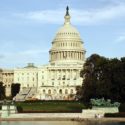
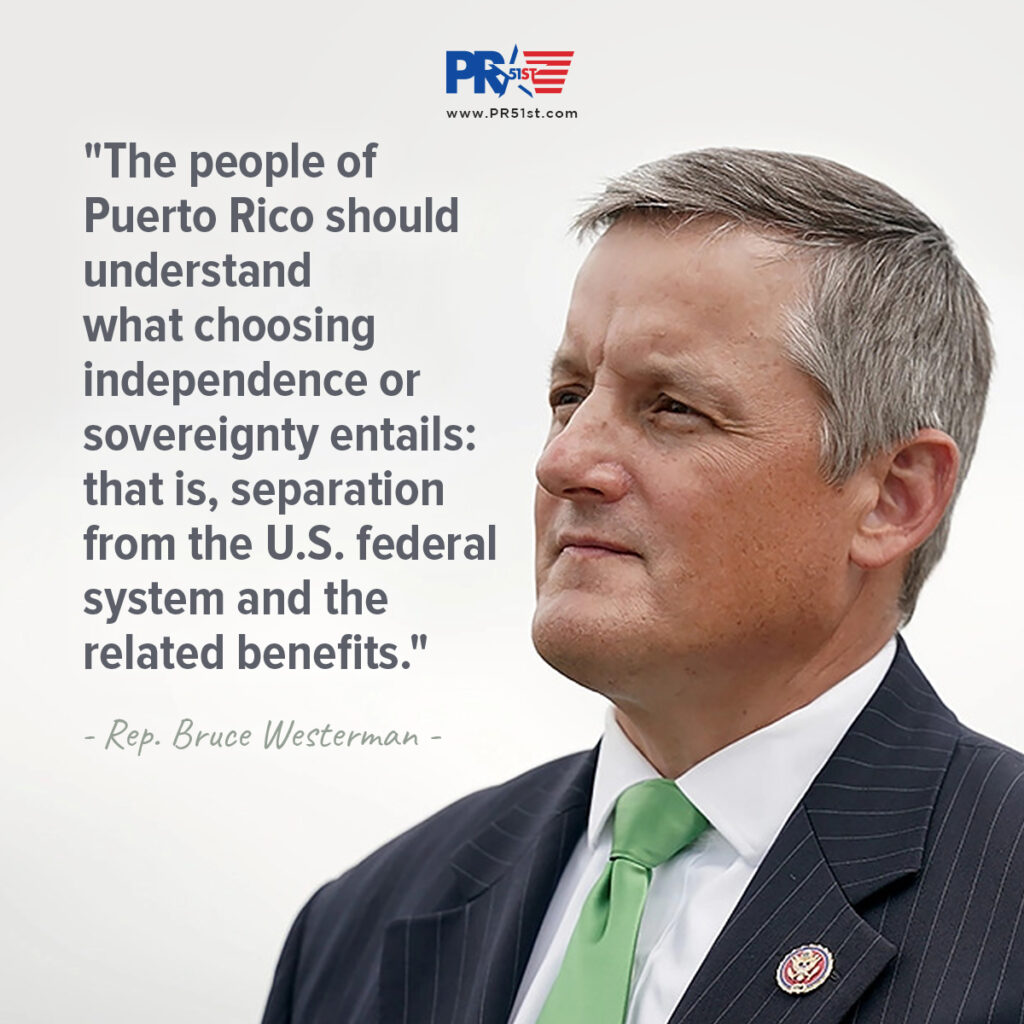
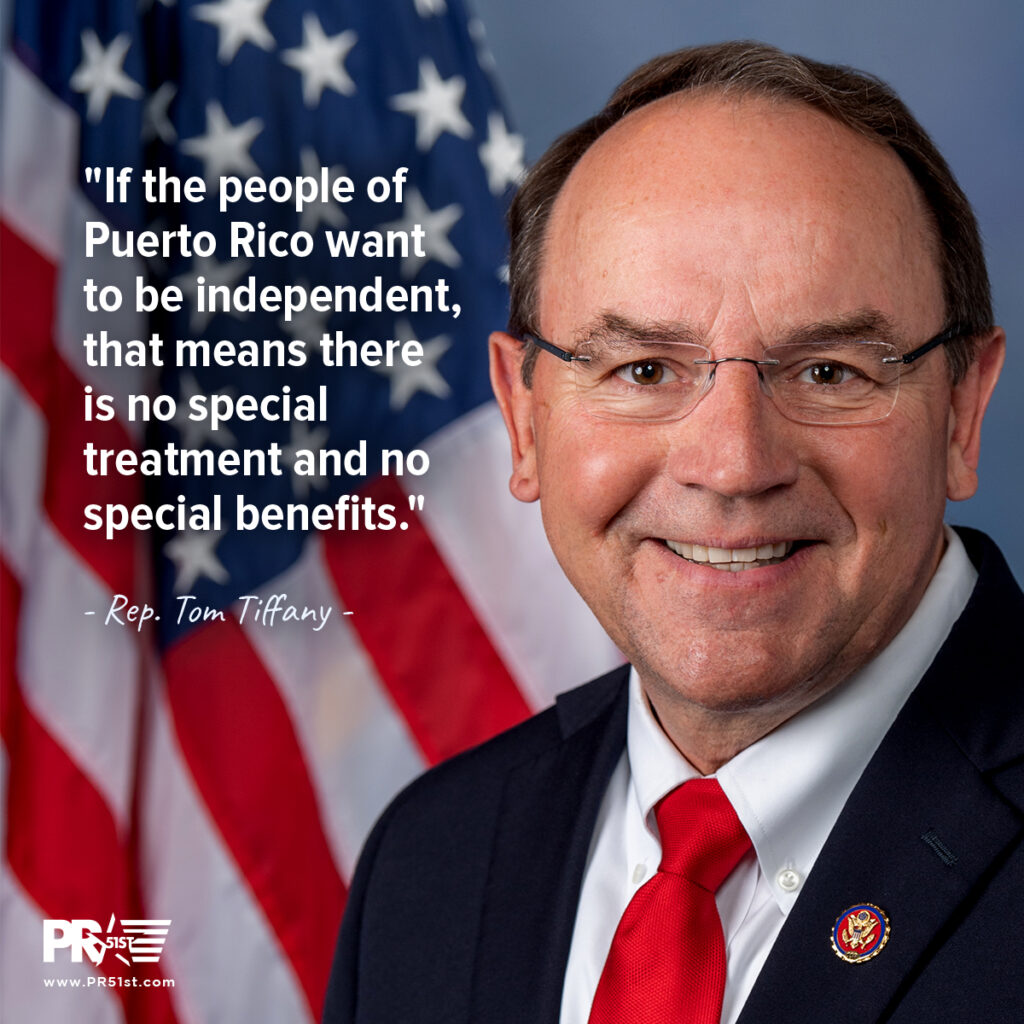
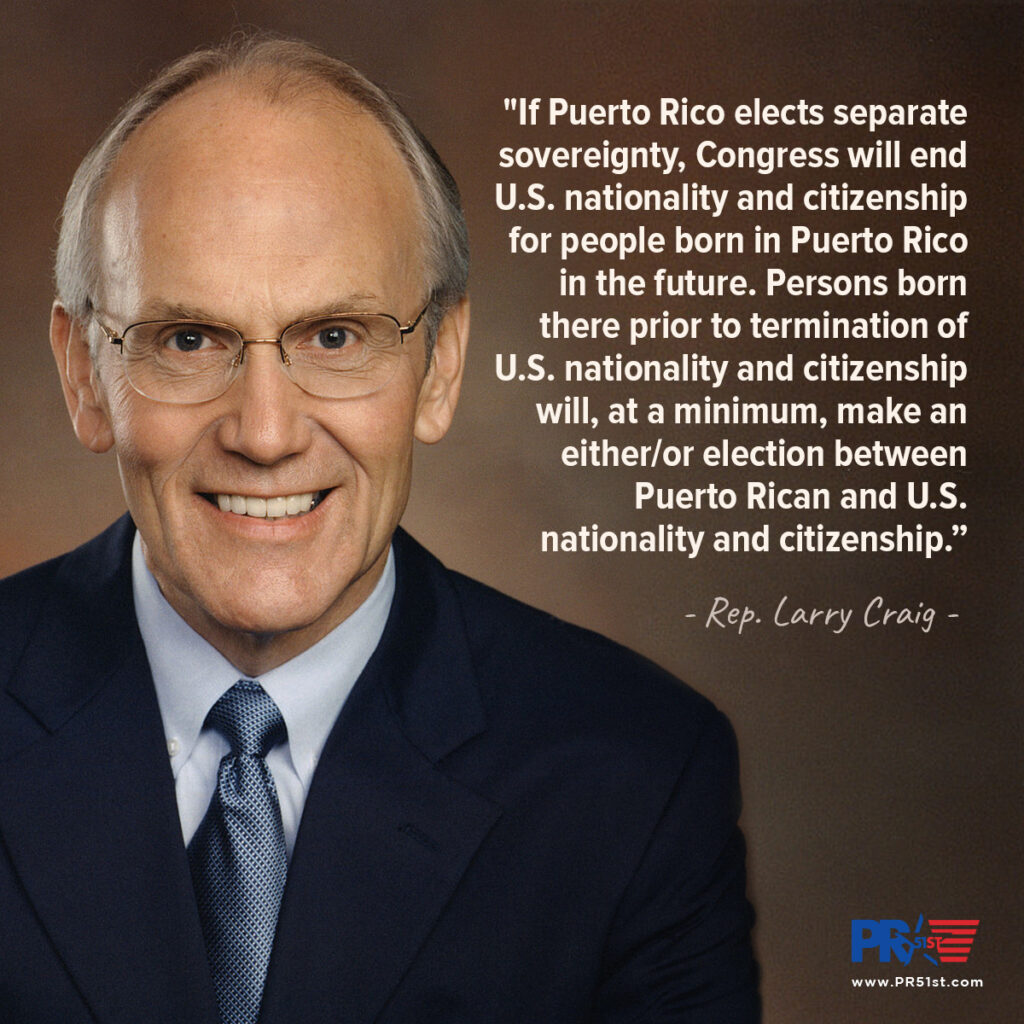
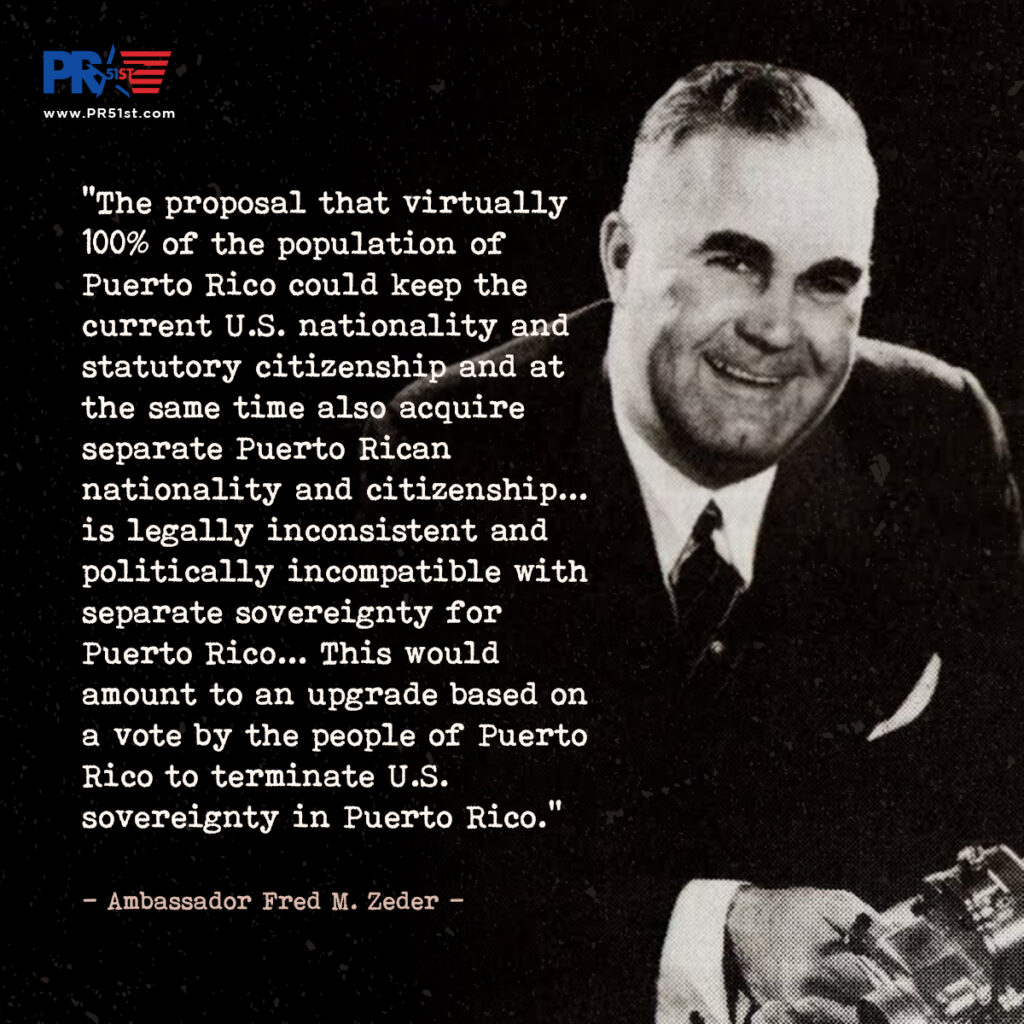





No responses yet